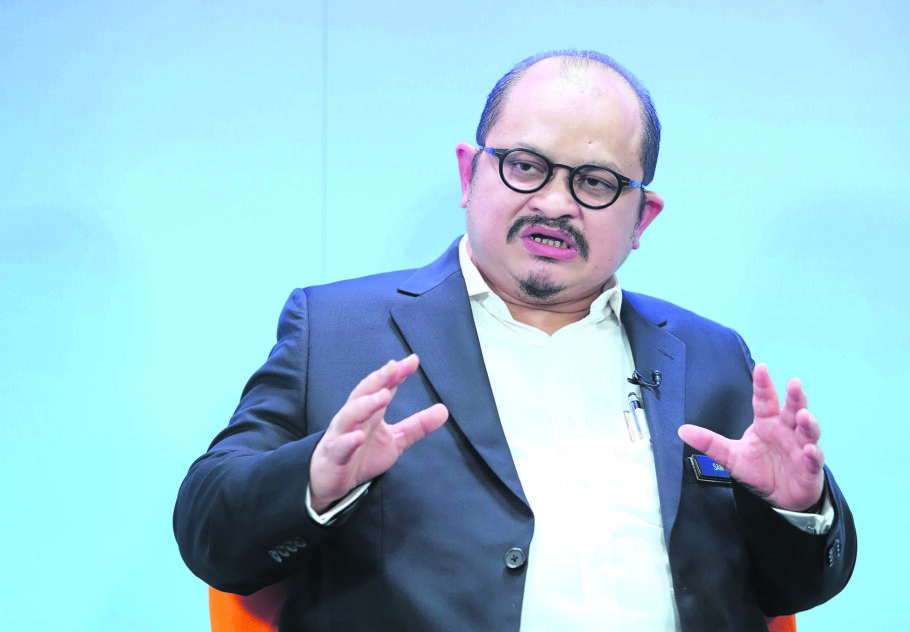THE day we graduated from our education path is the day we enter the working environment too!
This is a whole new phase of our life that we are very excited about and yet feel scared as there will be too many new things to encounter.
We will then be on our own instead of under our parents’ umbrella. We need to start to plan for our career path, plan for the next qualification and so on.
However, there is another important element in life that most of us do not put much thought into, which is financial planning. This is mainly because this topic is complex and was never taught in formal education.
In fact, financial planning is the first thing we should think about when we receive our first pay cheque. Some of us are fortunate to start this phase of life without any debts or even had some help from our parents such as a car.
However, some may need to start paying back debts such as study loans. With the first pay flowing in, the excitement of being able to spend your own money will also increase our desires and wants accordingly.
These may come from the right to spend your own money, peer pressures and work stress induced spending.
Whatever the reasons are, very soon we will find one common symptom: money is not enough!

Steps to follow
What should we do then? Simple, start with understanding ourselves better. Ask yourself – What would be important to you that you want and are proud to achieve in there to five years?
It can be to build a business capital, save for a down payment on a house or even pay for a professional course to improve yourself.
In short, money is just an enabler to help us achieve what we want in life.
Let us look at an example. A young man, Alex, wants to take a professional course and exam in three years’ time that cost RM10,000. This means he needs to put aside RM3,333 yearly which is about RM277 per month.
To achieve this, Alex adopts a simple strategy – Pay Yourself First. So, every month, he initiates a standing instruction with his bank to transfer this amount to a separate account. This way, he will be able to accumulate RM10,000 in three years.
Another frequently asked question by youths nowadays is how much should I save up? The answer is as much as you can!
Usually, at this stage, the youth should be staying with their parents. Thus, most expenses like electricity, dinners and weekend outings are paid for by the parents, so saving about 50% of their salary should not be difficult.
However, if you are staying away from home and most expenses are paid on your own, a target of 20% is advisable. These savings will help to enable your life goals and prepare yourself for rainy days such as loss of income or employment.
With the savings rate set, you can then plan your spending budget with the balance of your salary. Nowadays, there are apps that help you monitor your daily expenses, and, in this way, you will be able to ensure your spending is within your budget.
Paying off debts (if any) should be a priority in your planning. This way, you will create a good credit history that will help you in the future when applying for loans.
Another thing that you should put in your spending budget is to give some allowance to your parents. It is time for us to take care of them since they are entering their golden years. It would also be great if we can take over some of the expenses that they are paying for us such as insurance premiums and car expenses.
We should start also considering how to prepare for any unforeseen circumstances such as accidents or illnesses that may derail our life plan.
For those who are under employment, check with your Human Resource Department to have a full understanding of what kind of risk management coverage is provided.
Two main coverages that are of utmost importance for everyone are hospitalisation and personal accident. Should you have dependents that need your income for survival, then you should consider coverage for life, too.
Quite a few people I have met told me that I will only plan when I have more money. This is a bad strategy.
We plan so that we can get our money to work efficiently and effectively, especially at the early stage of our life. The less money we have, the more important it is to plan well as it will provide us with a lot more options and freedom in making our life decisions later on. – Oct 23, 2022
Shing Yee Ling, CFP, is a licensed financial planner with VKA Wealth Planners Sdn. Bhd. She is also a certified member of the Financial Planning Association of Malaysia (FPAM).
The views expressed are solely of the author and do not necessarily reflect those of Focus Malaysia









